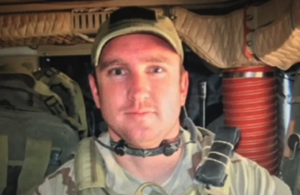The duty of care is a fundamental principle in healthcare, emphasizing the responsibility of medical professionals to provide competent and compassionate care to their patients. This principle holds particular significance in military medical facilities, where service members entrust their health and well-being to the military healthcare system. In this blog, we explore the duty of care in military medical facilities, examining its implications, challenges, and the crucial role it plays in upholding the health of those who serve.
Defining the Duty of Care:
The duty of care in military medical facilities refers to the obligation of healthcare providers to deliver services that meet a recognized standard of care. This standard encompasses the level of skill, knowledge, and diligence expected from a reasonably competent medical professional in similar circumstances.
Special Considerations in Military Healthcare:
Military healthcare providers face unique challenges due to the distinctive nature of their patients’ roles and responsibilities. The duty of care in military medical facilities extends not only to providing quality healthcare but also to considering the impact of medical decisions on the service member’s ability to fulfill their military duties.
Preserving Health for Mission Readiness:
A primary objective of the duty of care in military medical facilities is to preserve the health and well-being of service members to ensure mission readiness. The military relies on physically and mentally fit personnel, and healthcare providers play a crucial role in maintaining the readiness of the force through proactive and preventive care.
Understanding the Military Standard of Care:
In military healthcare, the standard of care is influenced by the unique challenges and demands of military service. Providers are expected to adhere to a standard that reflects the necessities of maintaining health in diverse environments, including deployment scenarios, combat situations, and peacetime service.
Holistic Approach to Healthcare:
The duty of care in military medical facilities involves a holistic approach to healthcare. Beyond treating specific injuries or illnesses, providers must consider the overall well-being of service members. This includes addressing mental health, preventive care, and supporting the unique healthcare needs of military families.
Emergency Medical Care:
Military healthcare providers must be prepared to deliver emergency medical care, often in challenging and high-stakes situations. The duty of care extends to providing timely and effective interventions, whether in a military treatment facility or in the field during deployment.
Informed Consent and Communication:
Communication is a vital aspect of the duty of care. Healthcare providers in military facilities must ensure that service members are adequately informed about their medical conditions, treatment options, and potential risks. Obtaining informed consent is crucial in respecting the autonomy of the patient and fostering a collaborative approach to healthcare decisions.
Cultural Competence and Sensitivity:
Military healthcare providers must demonstrate cultural competence and sensitivity to the unique aspects of military culture. Understanding the experiences, challenges, and stressors associated with military service is integral to providing effective and empathetic care.
Accountability and Continuous Improvement:
The duty of care also involves accountability for medical decisions and outcomes. Military healthcare providers participate in ongoing training and professional development to stay abreast of advancements in medical practices. A commitment to continuous improvement ensures that the duty of care evolves alongside advancements in healthcare.
Legal Implications:
The duty of care in military medical facilities has legal implications. Healthcare providers may be held accountable if their actions deviate from the established standard of care and result in harm to a service member. Legal recourse is available for individuals who experience negligence or malpractice within the military healthcare system.
Conclusion:
The duty of care in military medical facilities is a cornerstone of the commitment to safeguarding the health and well-being of service members. If you believe that you or a loved one has experienced a breach of the duty of care in military healthcare, seeking guidance from legal professionals specializing in military law is crucial. For personalized assistance, contact the dedicated team at ForTheMilitary.com. Understanding your rights and advocating for accountability is essential in upholding the principles of the duty of care within the military healthcare system.

 Call Now- Open 24/7
Call Now- Open 24/7





